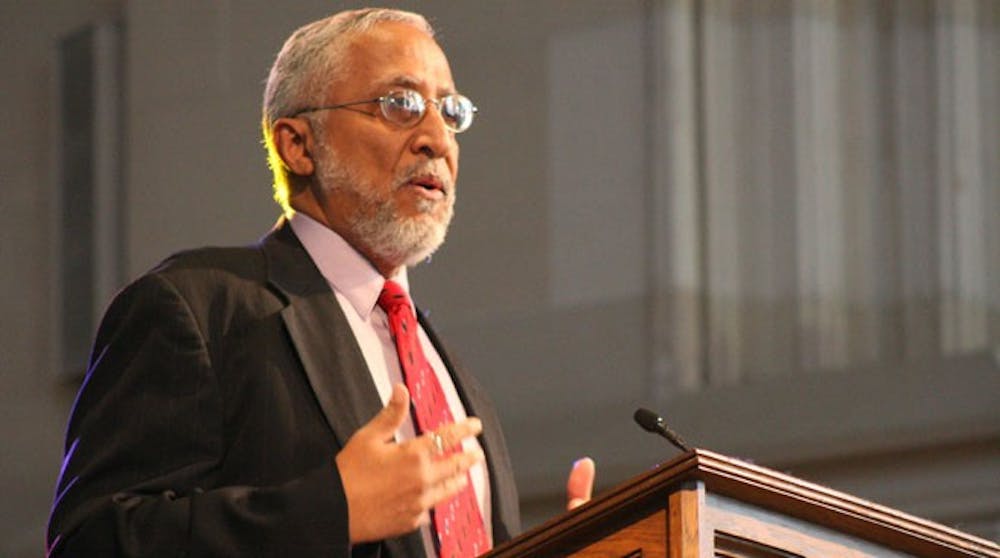The University of Richmond celebrated Martin Luther King Day Jan. 18 with a processional from the Jepson Quad to a service in Cannon Memorial Chapel which featured keynote speaker Oliver W. Hill Jr.
University students, faculty, staff and community members marched to the chapel. Several carried signs with statistics related to various civil rights issues such as, "1 in 9 black males are behind bars" and "75% of casualties in war are women and children."
The Multicultural Student Union headed the march.
"Think about what Dr. Martin Luther King's dream means to you," MSU president Tajh Ferguson told the participants. Ferguson said the statistics on the signs represented many groups, including MSU and the Student Alliance for Sexual Diversity.
"Civil rights is not just a black-and-white issue," she said.
The Umoja Gospel Choir, Choeur du Roi, and faculty and staff members performed "Hosanna" by Christy Nockels to begin the service.
People everywhere have to think about civil rights issues during the past and they have come to the city and the university to see this past three-dimensionally, President Edward Ayers said. People need to be reminded of the traditions they were a part of and the obligations they still owe, Ayers said.
Hill, a professor and chairman of the psychology department at Virginia State University, gave the keynote address. Hill is the son of Oliver W. Hill Sr., one of the attorneys who argued the Brown v. Board of Education civil rights case.
The service was titled "The Freedom Struggle Today" and Hill said he was impressed with the commitment Richmond has to creating a new generation of leaders in the area of civil justice. The focus of Hill's address was to discuss where the United States is in terms of civil rights and ask, "How do we get to the next set of issues that face us as a country?"
Hill focused on three issues that future leaders needed to address: equal education, reform of the criminal justice system, and ending discrimination based on sexual preference. Hill concluded his address by saying that we can all be inspired by King and that "we are all in this together."
Hill's address was followed by reflections from members of Richmond's recently chartered, first national African-American fraternity, Alpha Phi Alpha Fraternity Inc. King was a member of the fraternity and Charles Mike III, president of the Richmond chapter, spoke of the influence of King's legacy on his decision to join.
Enjoy what you're reading?
Signup for our newsletter
For the recessional, the Ngoma African Dance Company performed "Kou Kou," under the direction of artistic director Babadunjo Olagunke. Olagunke said it had been a wonderful thing to see the diverse faces in the audience.
"We have endured and we're going to celebrate that," he said.
Ngoma member Nailah Cummings said Hill's focus on addressing today's problems in the future was important.
"Change doesn't happen overnight," she said.
Glyn Hughes, the director of Common Ground, also said it was important for people to reflect on current issues as well as the past.
"I think it's tempting for most people to think of the civil rights era and imagine their selves that if they were there they would be full participants on the right side of things," he said. "The trick is to bring that sense of wanting to be on the right side into the present."
Contact staff writer Ashley Graham at ashley.graham@richmond.edu
Support independent student media
You can make a tax-deductible donation by clicking the button below, which takes you to our secure PayPal account. The page is set up to receive contributions in whatever amount you designate. We look forward to using the money we raise to further our mission of providing honest and accurate information to students, faculty, staff, alumni and others in the general public.
Donate Now



